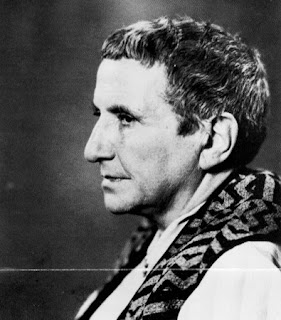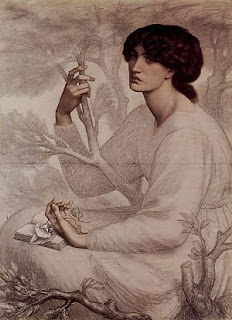Lawrence is very good for quotes: "Sex and a cocktail: they both lasted about as long, had the same effect, and amounted to about the same thing" (page 68).
1920's one-liners aside, tonight the drink is Stella Artois; the snack, "chewy peanut butter chocolate chip cookies" (currently cooling--time will tell if they are, in fact, chewy); the book, still Lady Chatterley's. Chapter six was an interesting chapter. We've set up a number of ideas, and we're now moving into the meat of the story. The summaries of the novel promise an affair between Constance and the gamekeeper, and the seeds are sown in chapter six.
The chapter begins where five left off (as chapters ought to do): Constance, in the throes of her confusion after the Michaelis affair, discusses things with Tommy Dukes, who appears to be asexual.
Constance begins with the question, "Why don't men and women really like one another nowadays?" (page 59). Tommy disagrees, and it's a sign of the times. In the early 20th century, it became more and more common for men and women to be platonic friends, whereas they were segregated by hobbies and propriety in earlier decades. Tommy, for example, professes that he likes women better than men: "they are braver, one can be more frank with them." Constance goes on to imply, essentially, that there must always be sexual feelings between men and women; even if they're not strong, barely there, the thought must always cross the mind at least once.
Tommy replies with the following:
"A woman wants you to like her and talk to her, and at the same time love her and desire her; and it seems to me the two things are mutually exclusive" (page 59).
He refers to his own experiences. He enjoys the company of women but doesn't desire them sexually (and he makes no comments about desiring men, which is either because of the time period or because Tommy just doesn't care about sex). Connie, however, believes--or hopes--that he is wrong, and that in fact one cannot exist without the other. No love without like, no desire without talk, no talk without love, no desire without like. If you remember back to Connie's premarital lover, she chose him because he was the one she had the best conversations with. This is Connie's ideal relationship, and the ideal relationship of many of us. Love can be intense, desire can be strenuous, and without "like" and "talk" to fill in the down time and give us something to rest on, the relationship becomes a house of cards.
It's not just a female thing, though. Just the other night, we read an article which commented that men will prefer a less attractive woman over a stone-cold fox if they like her better: if she has qualities they like. Clearly, Connie's onto something. We see it all the time in contemporary media: the "falling-for-the-best-friend" and the "257-points-of-compatibility" models especially.
Yet, this kind of relationship is beyond Connie's reach. She feels that there's something missing in male-female relations: "A woman has no glamour for a man any more" (page 60). Tommy asks her if men have glamour for a woman, and the answer is: not much. We're not talking about 1950's Hollywood glamour, at least not in the context of Ava Gardner on the red carpet; glamour can also refer to "an air of charm, romance, and excitement." That is what's lacking between men and women, in Connie's eyes. People are more honest, but not any simpler and the thrill is gone.
In chapter five, Clifford and Constance discussed the possibility of her bearing another man's child and raising it as the heir of Wragby, their estate. Constance gives this some more thought in chapter six, now in the context of her sexual depression: "One might take a lover almost at any moment, but a man who should beget a child on one...wait! wait! it's a very different matter. [...] It was not a question of love; it was a question of a man. Why, one might even rather hate him, personally. Yet if he was the man, what would one's personal hate matter? This business concerned another part of oneself" (pages 68-69). She's making the decision slowly because there is no man she now knows whom she respects enough; but respect even doesn't seem to matter. If she hates the man, how is he the man: what possible reason could she have for birthing the child of a man she hates? More on this later, hopefully. Connie's just a little confused right now.
There's also some interesting commentary on how money is a necessity as long as one is alive, but sex, emotion, everything else in fact can fall to the wayside. Nothing really matters for one's existence but money: "You couldn't spend your last sou, and say finally: So that's that!--No, if you lived even another ten minutes, you wanted a few more sous for something or other" (page 66). This is part of Connie's depression, her incredulous but total acceptance that nothing really matters to her generation: "...dynamic words were half dead now, and dying from day to day. Home was a place you lived in, love was a thing you didn't fool yourself about, joy was a word you applied to a good Charleston, happiness was a term of hypocrisy used to bluff other people, a father was an individual who enjoyed his own existence, a husband was a man you lived with and kept going in spirits" (page 65-66) etc. etc. etc.
The rest of the chapter is dedicated to the beginnings of the relationship between Connie and the gamekeeper, who is called Mellors. Her previous encounters with him have been uncomfortable. An ex-soldier, he sometimes sneers, sometimes salutes, and appears very mercurial. His eyes are described as "all-seeing," and Connie is shy of them. She also has the feeling that he does not respect her.
In chapter six, they first have a confrontation: Mellors has shot a poaching cat in front of his daughter. The two do not get along; it's implied at this point that she was born shortly before or while he was abroad in the army. His wife is shacked up with another tradesmen in the town. Connie, on a walk, hears the child crying about the cat, encounters a brusque Mellors, and takes his daughter back to her grandmother's. Later, Clifford is laid up with the flu and sends Connie to Mellors' cottage with instructions for him.
There's no response when she goes to the door, but hearing sounds around back, she goes and sees Mellors as he's washing. He's "naked to the hips, his velveteen breeches slipping down over his slender loins. And his white slim back was curved over a big bowl of soapy water..." (page 70). Connie skitters away without alerting him, shocked (in her womb) by what she saw.
She reflects on it: "Perfect, white, solitary nudity of a creature that lives alone, and inwardly alone. And beyond that, a certain beauty of a pure creature. Not the stuff of beauty, not even the body of beauty, but a lambency, the warm, white flame of a single life, revealing itself in contours that one might touch: a body!" (page 70). The whiteness of his body is reminiscent of female descriptions from previous works, like 1880's Nana, Zola's decadent story of a sexual woman. Mellors reflects a purity, or at least the appearance of purity, which is desired in females; and like Nana, sexuality goes hand in hand with that outward purity. Constance is attracted to it.
In another testament to Mellors' changeable nature, the gamekeeper Constance meets when she returns to his cottage is warm and kind to her, neither aloof nor insubordinate. Until she gives him his orders, that is; then he removes again. He appears to be a complex character, and I am very interested in learning more about him.
Enough for now. And by the way, the cookies were delicious.







